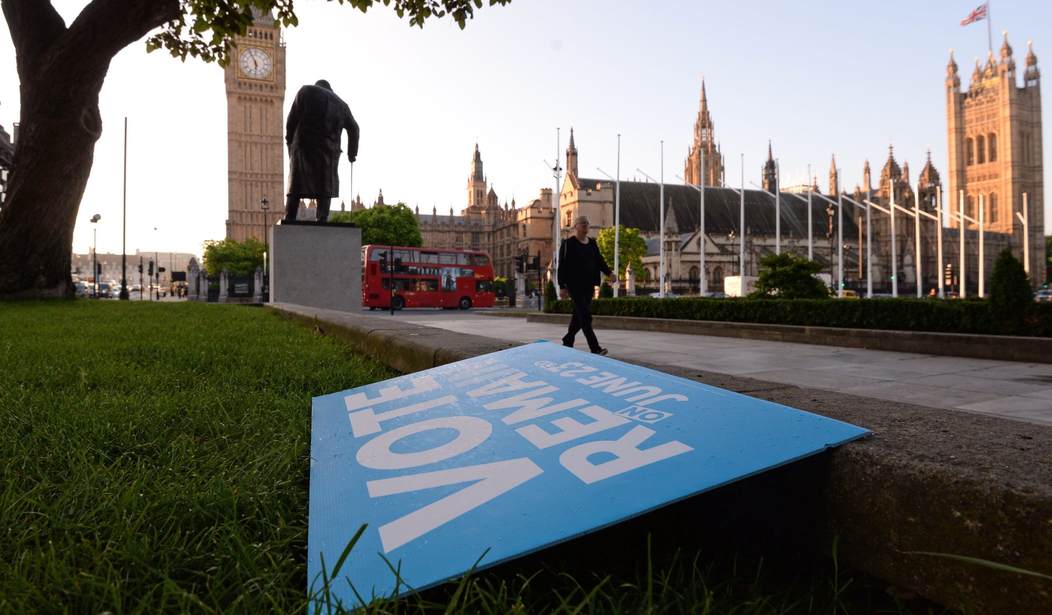What we know now (and may one day un-fondly remember) as the European Union came to life almost 70 years ago as the European Coal and Steel Community. While much smaller — the original member states were France, West Germany, Italy, and the Benelux countries — the founders’ ambitions were certainly grandiose. The noble idea behind the ECSC was to bind Western Europe’s warmaking industries (coal and steel are vital to war) together so tightly as to make a third continental war impossible.
The authors of the 1951 Treaty of Paris may have meant well, but there’s scant evidence that economic union prevents war or creates lasting comity. By the dawn of the 20th century, Europe’s national economies were bound together perhaps as tightly as today, measured by intra-Continental trade. It was in fact the conventional wisdom of the time that so much trade had made war between the major European states impossible. That thinking died just a few years later, along with millions of young men, on the battlefields of Belgium and northern France. It should also be noted that although Austria-Hungry was a single economic unit before the war, that proved no obstacle to its various peoples all going their separate ways as the Great War came to a close. But like the Bourbons, Europe’s would-be architects learn nothing and forget nothing.
That’s not to say that all the wishful thinking has been on one side. Hopeful nationalists — the Basques, Catalans, Scots, Flemish, Bretons, Sicilians, northern Italians, etc. — have argued that with the EU providing supranational governance, tiny nationalities or regional sub-countries would have an easier time at independence. And yet the EU’s nation-states have proven doggedly resilient; the only breakups have occurred before or without EU membership. Scottish voters, given the opportunity to leave the United Kingdom, rejected it soundly in a 2014 referendum. However, now that British voters (primarily English and Welsh) have voted to leave the EU, Scotland is once again threatening independence — and this time they just might get it.
But whatever the actual intentions behind the Treaty of Paris, the evolution from a trading bloc based on coal and steel to a inconceivably complex supranational, continental government has been a decades-long test of Progressive philosophy and policy — and Progressivism has been found wanting.
If the ECSC was founded on just one bad assumption, the EU has grown and floundered on many other bad assumptions, detailed below.
Here are the worst of them:
• That a “European” national identity could be woven from whole cloth.
• That when Athens borrows it is no different than when Berlin borrows.
• That the credentials of eurocrats can and should supplant the experience of people.
• That the EU’s southern tier of boutique industries could effectively compete with northern Europe’s hypercompetitive conglomerates.
• That fake flags and fake monuments could erase hundreds or thousands of years of real history.
• That welfare spending is a substitute for military spending.
• That alien guest workers are a substitute for having babies.
• That national borders are an impediment to peace.
• That proud local traditions (French unpasteurized cheeses, British imperial measurements, Italian devaluations) would be happily subsumed by all-encompassing diktats from Brussels.
• That North African and Middle Eastern Muslims could be made into Good Europeans — without any attempt at assimilation.
It is probably those last two points which most influenced those who voted for Brexit, and the sentiment seems to be spreading.
More broadly, the EU experiment is just the biggest and most expensive example of the Progressive need to pound every square peg into just one round hole. Thanks to those bad assumptions, the EU area is now:
• Economically and creatively stagnant compared to what it once was.
• Home to untold numbers of un-assimilatable Islamic refugees.
• Under an intolerable and increasing Islamic terrorist threat.
• On its way to becoming as virulently nationalistic as late Wilhelmine or Nazi Germany — if it hasn’t already.
• Militarily so weak that even Putin’s Russia, broke and depopulating, is a serious threat.
• Lurching from one political or economic crisis to another.
All of these items are of course intimately intertwined.
This is what the people of Britain have chosen to leave — not a free trade zone, but a corrupt and somnambulant regime of unaccountable micromanagers who have done perhaps as much as two world wars did to bring a once-mighty continent to its current condition.
Modern Britain has its own cultural, political, and economic maladies to contend with, any one of which might be enough to doom the former Empire to permanent third- or fourth-tier status. But hobbled by Brussels, Britain didn’t stand a chance. By voting for Brexit, Britons (save, perhaps, for the Scots) have voted to give themselves a chance.
Let’s hope they make the most of it.










Join the conversation as a VIP Member